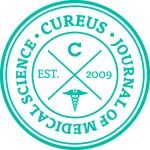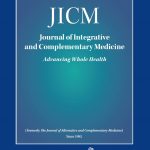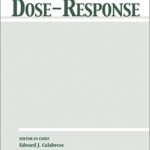A critical review by Michael Frass of an article of Kevin Smith published on Bioethics
Brief comment to Against homeopathy, a utilitarian perspective
Michael Frass, MD
Kevin Smith states in the abstract that he examines the positive and negative features of homeopathy from an ethical perspective. The perspective is defined as utilitarian. When looking to Wikipedia Utilitarianism (also: utilism) is the idea that the moral worth of an action is determined solely by its usefulness in maximizing utility and minimizing negative utility (utility can be defined as pleasure minus pain, preference satisfaction, knowledge or other things) as summed among all sentient beings. It is thus a form of consequentialism, meaning that the moral worth of an action is determined by its outcome. Smith describes the background to homeopathy: following the Law of Similars, he describes the Law of infinitesimals. Now I want to comment on the limitations of this report.
While Smith claims to explore the topic scientifically; already the title of his paper reveals the bias of the author: “Against homeopathy ” does not reflect the attitude of an independent scientist. Smith states that many of the symptoms recorded are highly subjective: “For example, ‘griping pains followed by passing offensive flatus, or a loose yellowish stool, which always produced great exhaustion’ (Echinacea angustifolia) …”: this is exactly what is necessary to treat a patient adequately and individually. A subjective description of their health state is mandatory also in conventional medicine: e.g. headache can only be described subjectively. No one can confirm or disprove whether a patient is suffering from headache or not, the physician is completely dependent on the patient’s credibility. Who knows whether headache patients are really suffering? If not, high amounts of money are spent for nothing.
“More fundamentally, there is simply no plausible or rational basis for supposing that substances that produce particular symptoms can cure the same symptoms. ”This is in contrast to common knowledge of drugs since 1785, when William Withering published “An Account of the Foxglove, and Some of Its Medical Uses (1785) ”. It is well known that digitalis can cause heart rhythm disturbances in healthy persons; while digitalis is used for treatment of heart rhythm disturbances in patients.
At another point Smith requests that “To determine whether a given substance actually causes a symptom, it would be necessary to conduct a clinical trial in which people who receive the substance are compared with people who receive a control substance. To minimise the risk of false results through random effects, a fairly large number of people would have to be enrolled on such a trial, since it is commonplace and entirely natural for healthy people to experience occasional unpleasant bodily feelings. Finally, to avoid bias, the trial would have to be ‘double-blinded’ (i. e. neither the experimenters nor the test subjects should be aware of which people receive the test substance or the control substance). ” This trial design is perfect in order to assess quantitative effects, however does not match to evaluate qualitative effects. However, a recent clinical, randomized, double-blind, controlled crossover study in healthy volunteers tested a homeopathic dilution of aconitum napellus. 1 This study examined whether a distinction can be made between the short-term reactions of healthy volunteers to a homeopathically diluted substance – Aconitum napellus C30 – and to a placebo. From the 33 subjects randomized for this double-blind, placebo-controlled crossover study, 27 could be included in the analysis. The study comprised two 7-day-long treatment periods, each including the intake of a study preparation for 3 days and a wash-out period of 4 days. One group was first treated with Aconitum napellus C30 and then with placebo; the other group received the two study preparations in the reverse order. The signs and symptoms before the first treatment and after each treatment were collected, evaluated, weighted and repertorized. Based on this classification the blinded physician assessed these signs and symptoms as study outcome parameter to represent the responses to each of the study preparations. Statistical analysis of the data was performed using the Wilcoxon-Mann-Whitney rank test. Crossover differences yielded statistical significance between the classified reactions towards Aconitum napellus C30 and to placebo (p = 0.004). A clear difference between the reported short-term reactions of healthy subjects towards Aconitum napellus C30 and towards placebo was shown. The crossover design with intra-individual comparisons proved to be adequate to recognize the study preparations and for the statistical analysis of a small population sample. 1 Therefore, even a strict study design could prove the validity of the early Hahnemannian provings.
Law of infinitesimals: Hahnemann has used his remedies at regular dosages during 1790 to 1800. Only then he invented the method of dynamization. While the scientific explanation for the effect of high potencies is still under investigation, no one is forced to use high potencies: for example, in anthroposophic medicine, low potencies are preferred. However, the research of Prof. Louis Rey, a renowned French physicist, could show that high potencies (C15) can exhibit physical properties. 2 Since this research work, it cannot be longer claimed that highly potentized homeopathic remedies such as sodium chloride and lithium chloride are not different from heavy water without those substances.
Smith is correct when reporting that homeopathic studies are usually poorly funded. This may be the main cause of limited number of homeopathic studies. Surprisingly, the metaanalyses are all positive for homeopathy; the last one in Lancet has shown an unchallenged positive result for homeopathy when the results were interpreted properly. 3
Ad placebo effects: An analysis of clinical trials comparing placebo with no treatment. published in the New England Journal of Medicine has shown that the placebo is powerless: 4 The authors found little evidence in general that placebos had powerful clinical effects. Although placebos had no significant effects on objective or binary outcomes, they had possible small benefits in studies with continuous subjective outcomes and for the treatment of pain. Outside the setting of clinical trials, there is no justification for the use of placebos. Thus I agree to the sentence by Smith “homeopathy-as placebo would have to be based upon, in effect, lying to patients. ”: Since homeopathy does more than placebo as proven above, it would truly be a lie to state that homeopathy works as placebo. This underlines the impression that the belief in the existence of placebo imitates religious behavior: no one has ever seen the placebo but believes in it as if it were existent. Believing in the power of placebo therefore is true esoteric thinking. 4 Another problem occurs in concentrating in the short time comparison of verum and placebo: if healing of e. g. headache occurs it should be permanent WITHOUT chronic intake of any drug: however, in conventional medicine chronic headache has to be treated chronically. Long term placebo effects are nowhere described in conventional medicine and are implausible.
The placebo discussion misses the point: if one assumes that placebo works then the logical consequence in conventional medicine would be to first use placebo in non-life–threatening illnesses, since it is cheaper and it is assumed to be as effective as the verum remedy; only if placebo fails, the verum therapy should be administered. However, instead of thinking logically and economically, it is much easier to bash homeopathy and to obscure the large amounts of expensive (really expensive versus low cost homeopathic drugs) drugs obviously unnecessarily administered in conventional medicine. The same problem regarding logical consequence is the “empathy of the homeopath”: it is suggested that the time spent by the homeopath leads to the unchallenged effects in homeopathy: if it were true, why then 1) does psychotherapy with a much larger amount of time spent with the patient NOT lead to healing of diseases? ; and 2) why do physicians in conventional medicine not spend the same amount of time with their patients? Again, ideology seems to prevent logical thinking.
Homeopathy also challenges the diagnostic validity in conventional medicine: whenever a healing occurs following homeopathic treatment in an otherwise not spontaneously healing disease, all in a sudden and surprisingly 1) either the conventional diagnosis is seriously questioned even when established by a professional specialist in a top institution or 2) such a disease becomes a self-healing one.
Disutilities of Homeopathy
Smith complains “1) the risk of failing to seek conventional healthcare. 2) Additional potential disutilities include waste of medical resources. ” Ad 1): this is true: however, not only for homeopathy, but also for conventional medicine: if the practitioner makes a mistake, it is the failure of the practitioner and no the method. Since in Austria homeopathy may only be administered by physicians, medical aspects are taken into consideration, because they are acting as physicians first and secondarily consider a specific method (conventionally or CAM). Ad 2) Obviously, Smith is not a medical practitioner: Due to low compliance of patients, a high percentage of drugs are not used by the patients. Since single remedies in classical homeopathy are low-cost it appears ridiculous to claim high costs.
In conclusion, Smith’s paper appears to be biased and to neglect recent findings. Furthermore, it negates the problem of multiple variables: while studies in conventional medicine usually concentrate in a single parameter, multiple parameters are taken into account in homeopathy. Therefore, the philosophical background of the paper is shallow and misses the target of the actual needs of patients. The dogmatic character is disappointing and reminds of old days in religious disputes. Modern homeopaths are trying t use the valuable method without fanatic behavior for the sake of the patients.
Michael Frass, MD
Literature
Piltan D, Rist L, Simões-Wüst P, Saller R. Test of a Homeopathic Dilution of Aconitum napellus. A Clinical, Randomized, Double-Blind, Controlled Crossover Study in Healthy Volunteers. Forsch Komplementmed 2009; 16:168-73
Rey L. Thermoluminescence of ultra-high dilutions of lithium chloride and sodium chloride. Physica A 2003; 323: 67-74
Frass M, Schuster E, Muchitsch I, Duncan J, Geir W, Kozel G, Kastinger-Mayr C, Felleitner AE, Reiter C, Endler C, Oberbaum M. Asymmetry in The Lancet meta-analysis. Homeopathy 2006; 95:52-3
Hróbjartsson A, Gøtzsche PC. Is the placebo powerless? An analysis of clinical trials comparing placebo with no treatment. N Engl J Med 2001; 344: 1594-602
Fonte: Michael Frass, MD







